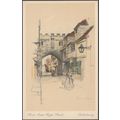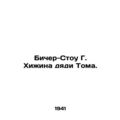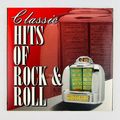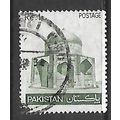Avila, Spain - aerial view - postcard c.1970s
- Condition : Used
- Dispatch : 2 Days
- Brand : None
- ID# : 125000382
- Quantity : 1 item
- Views : 273
- Location : United Kingdom

- Seller : justthebook (+1699)
- Barcode : None
- Start : Fri 28 Feb 2014 05:16:16 (EDT)
- Close : Run Until Sold
- Remain : Run Until Sold
Checks/Cheques
 for 1 item(s) edit
for 1 item(s) edit
Shipping Calculator
More Listings from This Seller view all
Seller's Description
- Postcard
- Picture / Image: Avila, Spain - aerial view / Vista aerea
- Publisher: Dominiguez
- Postally used: no
- Stamp: n/a
- Postmark(s): n/a
- Sent to: n/a
- Notes / condition:
Please ask if you need any other information and I will do the best I can to answer.
Image may be low res for illustrative purposes - if you need a higher definition image then please contact me and I may be able to send one.
------------------------------------------------
Postage & Packing:
UK (incl. IOM, CI & BFPO): 99p
Europe: £1.60
Rest of world (inc. USA etc): £2.75
No additional charges for more than one postcard. You can buy as many postcards from me as you like and you will just pay the fee above once. (If buying postcards with other things such as books, please contact or wait for invoice before paying).
Payment Methods:
UK - PayPal, Cheque (from UK bank) or postal order
Outside UK: PayPal ONLY (unless otherwise stated) please. NO non-UK currency checks or money orders (sorry).
NOTE: All postcards are sent in brand new stiffened envelopes which I have bought for the task. These are specially made to protect postcards and you may be able to re-use them. In addition there are other costs to sending so the above charge is not just for the stamp!
I will give a full refund if you are not fully satisfied with the postcard.
----------------------------------------------
Text from the free encyclopedia WIKIPEDIA may appear below to give a little background information (internal links may not work) :
*************
Ávila (Spanish pronunciation: ['aßila]; Latin: Abila and Obila) is a Spanish city located in the autonomous community of Castile and León, and is the capital of the Province of Ávila.
It is sometimes called the City of Stones and Saints, and it claims that it is one of the cities with the highest number of Romanesque and Gothic churches (and bars and restaurants) per capita in Spain. (Zamora, a city of similar size, claims the greatest number of Romanesque churches in Europe.) It is notable for having complete and prominent medieval city walls, built in the Romanesque style. The city is also known as Ávila de los Caballeros, Ávila del Rey and Ávila de los Leales (Ávila of the Knights, the King and the Loyalists), each of these epithets being present in the city standard.
The writer José Martínez Ruiz (Azorín), in his seminal book El alma castellana (The Castilian Soul), described it as ""perhaps the most 16th century city in Spain"", and it was declared a UNESCO World Heritage Site in 1985.
Situated 1132 meters (3714 feet) above sea level on a rocky outcrop on the right bank of the Adaja river, a tributary of the Duero, Ávila is the highest provincial capital in Spain. It is built on the flat summit of a rocky hill, which rises abruptly in the midst of a veritable wilderness; a brown, arid, treeless table-land, strewn with immense grey boulders, and shut in by lofty mountains.
In pre-Roman times (5th century BC), Ávila was inhabited by the Vettones, who called it Obila (""High Mountain"") and built one of their strongest fortresses here. There are Bronze Age stone statues of boars (known as verracio) nearby.
Ávila may have been the ancient town known as Abula, mentioned by Ptolemy in his Geographia (II 6, 60) as being located in the Iberian region of Bastetania. Abula is mentioned as one of the first cities in Hispania that was converted to Christianity by Secundus of Abula (San Segundo), however, Abula may alternatively have been the town of Abla.[2]
After the conquest by ancient Rome, the town was called Abila or Abela. The plan of the city remains typically Roman; rectangular in shape, with its two main streets (cardo and decumanus) intersecting at a forum in the center. Roman remains that are embedded in city walls at the eastern and southern entrances (now the Alcazar and Rastro Gates) appear to have been ashlar altar stones.[3]
By tradition, in the 1st century, Secundus, having travelled via the Roman province of Hispania Baetica, brought the Gospel to Avila, and was created its first bishop.[4]
After the fall of the Western Roman Empire, Ávila became a stronghold of the Visigoths. Conquered by the Arabs (who called it Abila, ????), it was repeatedly attacked by the northern Iberian Christian kingdoms, becoming a virtually uninhabited no man's land. It was repopulated about 1088 following the definitive reconquest of the area by Raymond of Burgundy, son in law of Alfonso VI of León and Castile. He employed two foreigners, Casandro Romano and Florin de Pituenga, to construct a stone frontier city and creating the walls that still stand.[5]
The city achieved a period of prosperity under the Catholic Monarchs in the early 16th century, and their successors Charles V and Philip II of Spain, but began a long decline during the 17th century, reducing to just 4,000 inhabitants.
In the 19th century there was some population growth with the construction of the railway line from Madrid to the French border at Irun and an important junction near the city. In 1936, at the outbreak of the Spanish Civil War, the city quickly became part of the area occupied by rebel troops. Growth continued slowly again under Franco, but Ávila has not had a major influence in Spanish society in recent history, apart from the nurturing of politicians such as Adolfo Suárez, the first democratically-elected prime minister Spanish post-Franco, and José María Aznar, prime minister from 1996 to 2004, who represented Ávila in the Cortes but was not from the town.
type=printed postcards
theme=topographical: rest of the world
sub-theme=europe
county/ country=spain
number of items=single
period=1945 - present
postage condition=unposted
Listing Information
| Listing Type | Gallery Listing |
| Listing ID# | 125000382 |
| Start Time | Fri 28 Feb 2014 05:16:16 (EDT) |
| Close Time | Run Until Sold |
| Starting Bid | Fixed Price (no bidding) |
| Item Condition | Used |
| Bids | 0 |
| Views | 273 |
| Dispatch Time | 2 Days |
| Quantity | 1 |
| Location | United Kingdom |
| Auto Extend | No |





















